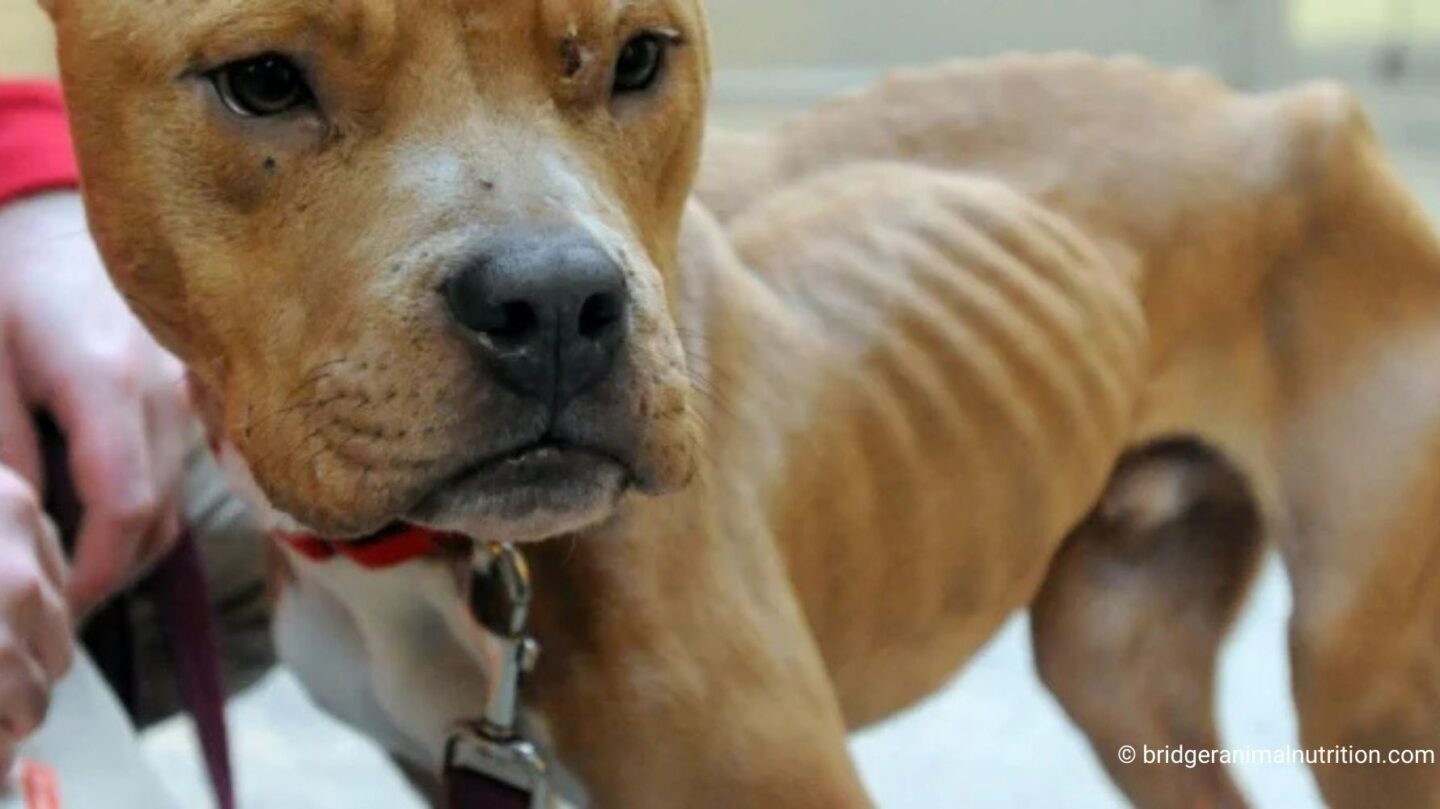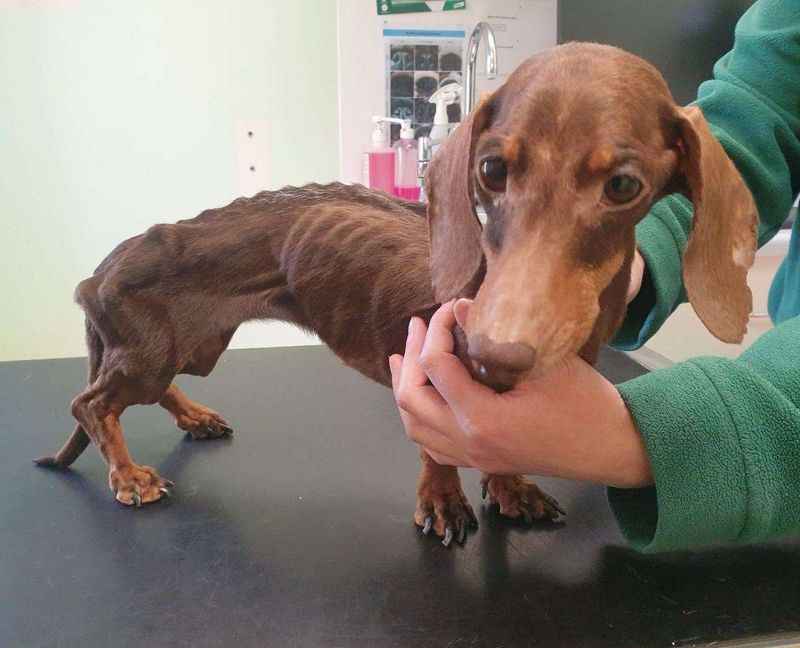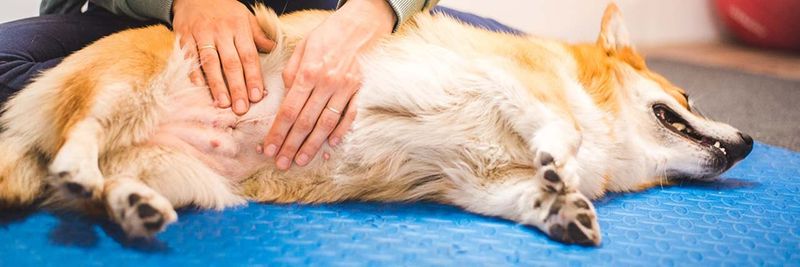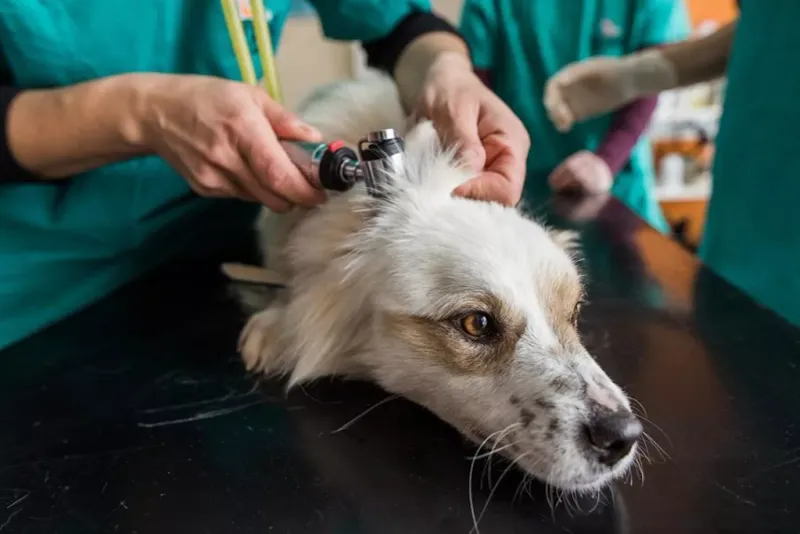Malnutrition in dogs can be a silent yet serious issue that affects their overall health and well-being. Recognizing the warning signs is crucial for any pet owner to take immediate action and ensure their furry friend receives the necessary care. Below are ten key indicators that your dog might be suffering from malnutrition, each requiring your attention and possibly a visit to the veterinarian. By being aware of these signs, you can help prevent further health issues and keep your pet happy and healthy.
Weight Loss
If your dog has suddenly lost weight without any apparent reason, it could be a sign of malnutrition. Noticeable weight loss may mean that your dog isn’t getting enough nutrients or there might be an underlying health issue.
This change might be accompanied by a lack of energy or enthusiasm for activities they once enjoyed.
Monitoring your pet’s weight and consulting with a veterinarian can provide insights into their dietary needs and overall health. Rapid weight loss requires prompt attention, so don’t hesitate to seek professional advice if you notice this symptom.
Dull Coat and Hair Loss
A shiny, full coat is often a reflection of a dog’s good health. If your pet’s coat becomes dull, brittle, or begins to fall out in patches, it might indicate malnutrition. Nutrient deficiencies can affect the skin and hair, resulting in an appearance that’s less than vibrant.
Regular grooming and a balanced diet rich in essential fatty acids can help restore their coat’s natural shine. However, if the issue persists, a vet visit might be necessary to rule out other health concerns.
Keeping an eye on coat quality is a vital aspect of pet care.
Lethargy and Weakness
When a once-bouncy dog becomes lethargic and uninterested in their favorite activities, it may be due to malnutrition. A lack of energy could stem from insufficient calories or specific nutrient deficiencies.
This change in behavior might be subtle at first, but over time, you may notice your dog being less playful or taking longer naps.
Ensuring a balanced diet can often remedy this, but persistent lethargy should prompt a veterinary consultation to rule out other potential health issues.
Digestive Issues
Frequent vomiting or diarrhea can be unsettling and may signal nutritional problems in dogs. Such digestive issues might arise from a sudden change in diet or underlying health condition demanding attention.
Observing your pet closely can help determine if their diet is the culprit. Some dogs might be sensitive to certain ingredients or require a more nutrient-dense diet.
Chronic digestive problems warrant a trip to the vet to assess your dog’s nutritional requirements and possibly adjust their feeding regimen.
Behavioral Changes
Changes in behavior, such as increased anxiety or aggression, can sometimes be linked to nutritional deficits in dogs. A lack of essential vitamins and minerals may affect mood and overall temperament.
While it can be challenging to attribute behavioral changes directly to diet, maintaining a well-balanced nutritional plan can support emotional well-being. If your dog exhibits unusual behavior consistently, consider consulting a vet.
A comprehensive approach to diet may help in stabilizing their behavior and enhancing their quality of life.
Frequent Infections
A weakened immune system due to malnutrition may result in frequent infections, such as ear or skin infections. These recurring issues are troublesome and could indicate a lack of necessary nutrients.
Supporting your dog’s immune health through proper nutrition is fundamental. A diet rich in antioxidants and essential nutrients can bolster their defenses.
If infections persist despite dietary adjustments, further investigation by a vet is advised to pinpoint underlying causes and provide adequate treatment.
Slow Healing Wounds
If your dog’s wounds or injuries are taking longer than usual to heal, malnutrition might be at play. Proper nutrition is vital for the body’s ability to repair itself, and a deficit can slow down this natural process.
Ensuring a diet rich in proteins and vitamins can aid in faster recovery and prevent complications. However, persistent issues with healing should be evaluated by a vet to exclude other health concerns.
Regular check-ups and nutritional assessments can ensure your pet’s optimum health and vitality.
Bad Breath
While bad breath is often dismissed as normal, it might hint at underlying nutritional issues. A diet lacking in certain nutrients can affect oral health, leading to unpleasant odors.
Regular dental care and a balanced diet can improve your pet’s breath and prevent dental problems. If the issue persists, it could indicate more serious health concerns needing veterinary attention.
Addressing dietary gaps and maintaining oral hygiene are key to keeping your dog’s mouth healthy and odor-free.
Bones and Joints Problems
Joint stiffness or discomfort in dogs might be more than just aging; it could signal nutritional deficiencies. Essential nutrients like calcium and vitamin D are crucial for bone health and mobility.
Providing a diet that supports joint health can enhance your dog’s comfort and mobility, especially as they age. If you notice signs of discomfort or difficulty moving, a vet’s evaluation can help tailor a diet plan.
Enhancing quality of life through nutrition is a proactive approach to managing joint health.
Excessive Shedding
While all dogs shed to some extent, excessive shedding can be alarming and may indicate nutritional imbalances. A lack of essential fatty acids or proteins may lead to increased hair loss.
Regular grooming and ensuring a diet that supports skin and coat health can mitigate excess shedding. If shedding remains a concern, exploring dietary adjustments with a vet can be beneficial.
Maintaining a healthy coat through nutrition and care is essential for your dog’s overall well-being.










